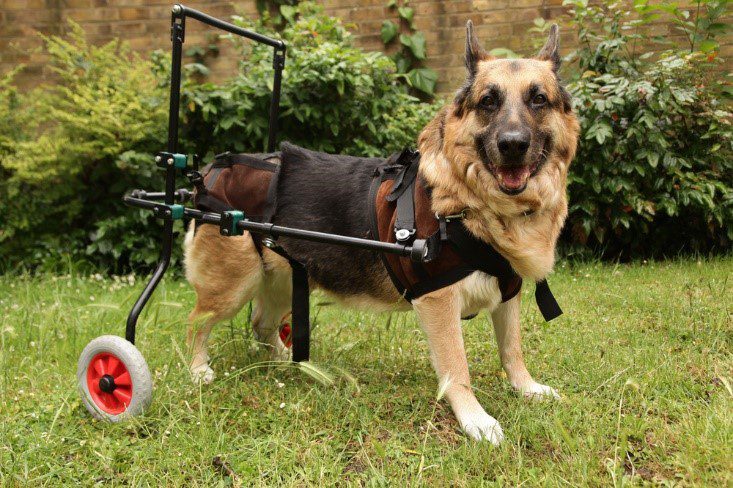nDogs and Musculoskeletal Disorder: The most Common Musculoskeletal Disorders in Dogs consists of the muscle and skeleton working together to form support for joints, and musculoskeletal disorders in dogs generally refers to bone and joint problems.
These disorders can be genetic, the result of injury, or as part of the ageing process, and they are more commonly seen in large and active breeds. There are many and varied musculoskeletal disorders, but we’ll focus on the most common ones for this article, and what you can do to help.
Arthritis
People typically associate arthritis with older dogs, and in fact, osteoarthritis arises from the degeneration of cartilage in the joints, often due to age and overuse. Most Common Musculoskeletal Disorders in Dogs However, hypertrophic arthritis can occur in younger large-breed dogs and is often referred to as growing pains. Treatment usually consists of ant-inflammatory medication and pain killers, and joint support.
Anterior Cruciate Ligament Disorders
The cruciate ligament supports the knee in the dog’s hind legs and can be injured, as it often happens with large working dogs, or it can degenerate over time. Partial tears can heal with rest, but more extensive damage needs surgery to repair and stabilise the joint.
Dogs with cruciate ligament disorders will often have swelling and pain around the affected joint, and it’s important to ensure they rest and see their vet to prevent further damage.
Patellar Luxation
Often called knee dysplasia, patellar luxation is where the kneecap slips out of place repeatedly and can cause further damage to the joint over time if not treated. The dog may develop a strange skipping gait, and treatment is not always effective. Only severe cases require surgery.
Hip or Elbow Dysplasia
Large dogs that grow too fast due to an inappropriate diet or excessive exercise often develop hip or elbow dysplasia, which damages the joints and causes them to develop incorrectly. Many large breeds inherit this genetic health condition, which can manifest in young dogs or remain undetected until much older.
Depending on the severity of the condition, doctors may prescribe medication and painkillers, or in the worst cases, surgery.
Dogs and Musculoskeletal Disorder: Osteochondrosis
Another disorder caused by rapid growth in large dogs, osteochondrosis affects the shoulder, elbow and knee joints and often affects pups less than a year old. When the smooth cartilage in the joints becomes inflamed, small pieces break off and float around, exacerbating the pain.
Mild cases can heal with plenty of rest, but more severe cases will need surgery.
Finding the Cause and Cure
When it comes to diagnosing musculoskeletal problems, doctors usually use diagnostic imaging methods like X-rays or MRIs in addition to physical tests. For certain myopathies, laboratory testing may also be necessary.
Depending on the pet”s health, possible treatments may involve:
- There are medications that reduce inflammation and alleviate discomfort.
- Manual treatment increases the range of motion and muscular strength.
- Surgical procedures for more serious instances, such as stabilizing joints, are necessary.
- Correcting nutritional deficits through nutritional management
The key to effective therapy is early detection, so it’s a beneficial idea to have your pet in for checkups often.
Veterinary Hospital Port Kennedy
Your pet’s health and comfort are our top priority, so if your dog shows signs of any musculoskeletal disorders, bring them in to the vet clinic at Port Kennedy Vets for assessment and early treatment.
Call 08 9524 6644 or contact us online for any enquiries or health concerns regarding your pet.




